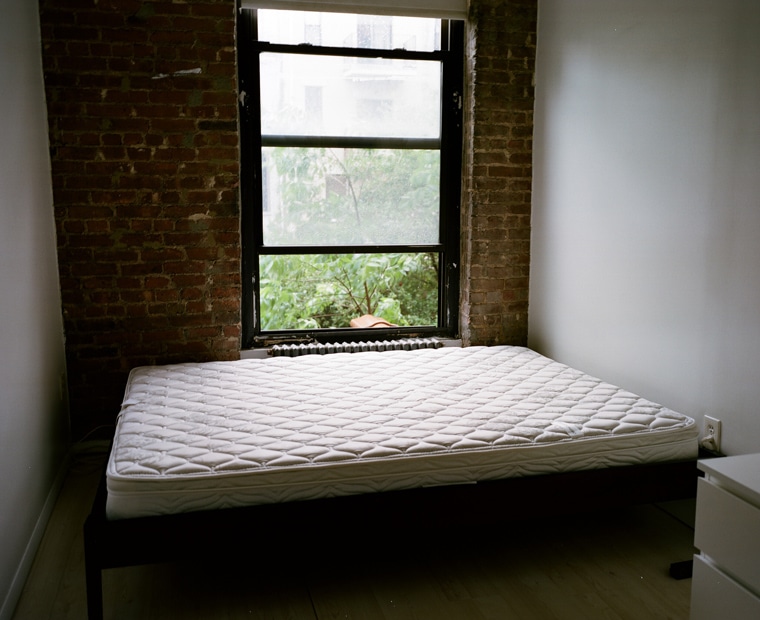In Oregon, a new bill allows students to take ‘mental health days’ off school
Mental health is not an easy topic to discuss. It’s one that, not that long ago, was never brought up in conversations, was taboo and often seen as a sign of weakness. Today, talking about your mental health (or someone else’s) is slowly becoming more common, with some countries and cultures more open-minded than others. Yet, when it comes to mental health problems, especially for teenagers, we still have to fight for more—more discussions and more help to reduce the stigma that surrounds it.
This is what four students from Oregon, U.S. worked towards by implementing a new law that allows students to take ‘mental health days’ off school, just as they would sick days. Talking to NBC News about this concept, experts said it is “one of the first of its kind in the U.S.”, something that is both worrying for the present and inspiring for the future. How have we not yet tackled mental health as a global topic that affects about 1 in 10 children and young people? And where does this stigma come from? Screen Shot spoke to Paris-based child and adolescent psychiatrist Dr Hélène Strauss for some answers.
“Indeed, mental health problems, schizophrenia in particular, scare people away and convey this image of a crazy person that hears voices. In the U.S., with the healthcare system they have, Americans with health problems often end up homeless,” said Dr Strauss. According to the Mental Health Foundation, 70 percent of children and young people who experience a mental health problem have not had appropriate interventions at a sufficiently early age. Mental health problems include depression, anxiety, self-harm, generalised anxiety disorder (GAD), post-traumatic stress disorder (PTSD), and eating disorder. These are mental health problems that commonly occur in children, often as a direct response to what is happening in their lives.
“In France, teenagers that need mental health services can gain a medical certificate. Medical confidentiality is respected and their note never specifies a diagnostic. With the children’s agreement, the psychiatrist can then work with teachers and the headmaster in all discretion. Adolescence is a sensitive period and, sometimes, specific symptoms have to be taken care of urgently. Being able to miss school in order to seek treatment can be indispensable,” adds Dr Strauss.
A recent study by YouGov showed that 30 percent of millennials in the U.S. say they always or often feel lonely, a higher percentage than baby boomers, at only 15 percent. While this specific study didn’t look at the possible link between mental health and social media, earlier studies point to these platforms and the internet more generally as influences. Talking about social media, Dr Strauss says, “Social media made bullying and harassing easier. This can strongly affect a child and teenagers’ fragile mental health and lead to anxiety, sleep disorders, and suicide attempts.”
One of the four students who helped push the mental health bill, 18-year-old Haily Hardcastle, said she’s received some opposition from parents who said the legislation wasn’t necessary, as students could already take mental health days off by pretending to be sick. Others worried about students using this law as an excuse to miss more school, bringing down the already low attendance rates.
This mentality is exactly what pushes teenagers to lie about their mental health problems, it’s what keeps the stigma surrounding it alive. It is urgent for parents to realise that opening up this discussion is the only way to tackle mental health, and that calling kids ‘over-sensitive’ or ‘coddled’ does more damage than them missing a day of school because they feel physically or mentally ill.
Dr Hélène Strauss counter argues that even though this law is a big step forward in the discussion surrounding mental health, it is also a double-edged sword that clearly goes against the concept of medical confidentiality. Even a short stay in a psychiatric institution affects someone’s life—it shows on your medical record, influences your bank credits, and even your job opportunities. Dr Strauss’ worry is that this bill would be used against students in the future to almost ‘penalise’ them, instead of working in their favour. This point makes sense, considering how governments and lawmakers can sometimes manipulate people; yet it’s also one I choose to ignore for the moment, worried I might start wearing a tin foil hat or worse, storm Area 51.
What can we do in the meantime? Act on the public health domain first, and “Promote access to psychological care for children and teenagers, train teaching staff so that they can provide kids in need with guidance, implement school psychologists and prevention campaigns in schools” as Strauss stresses. Let’s make big changes with small steps.






